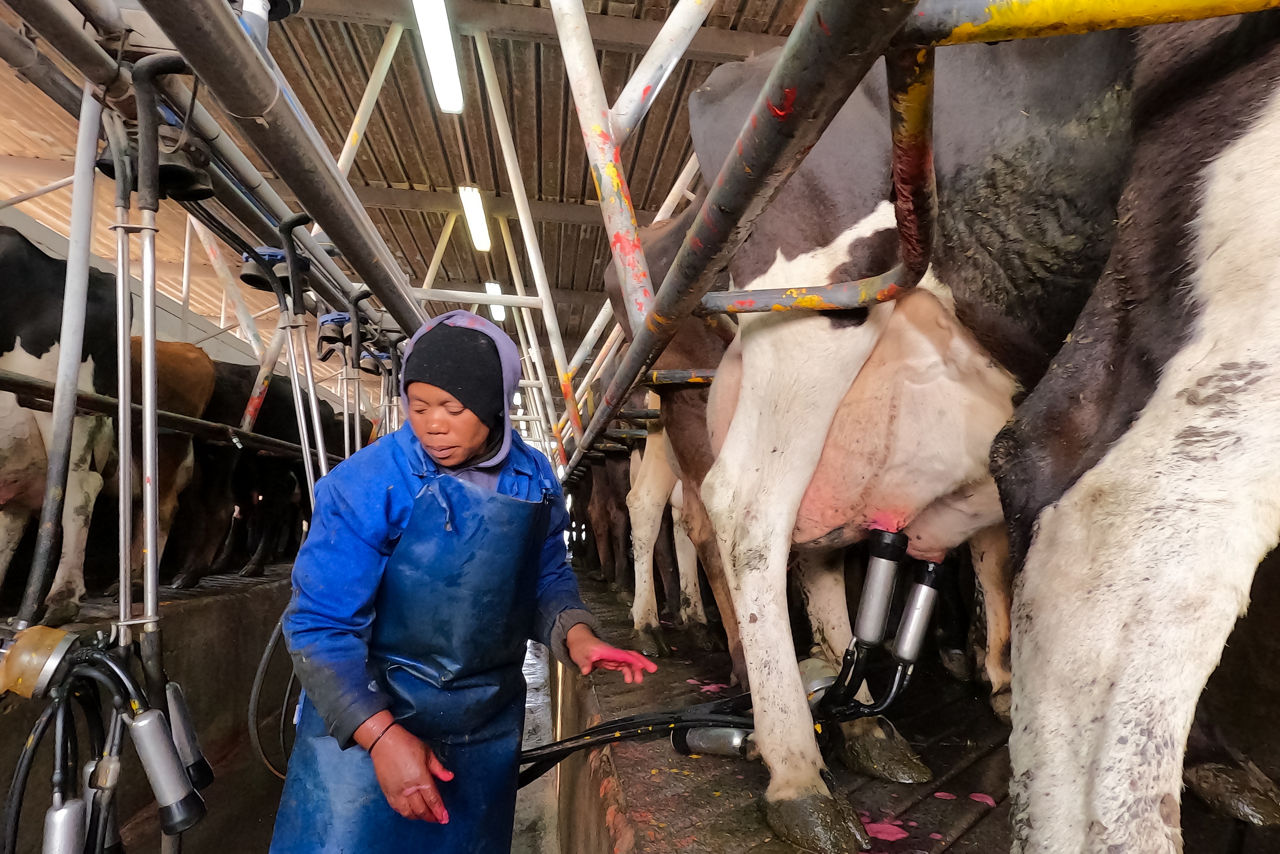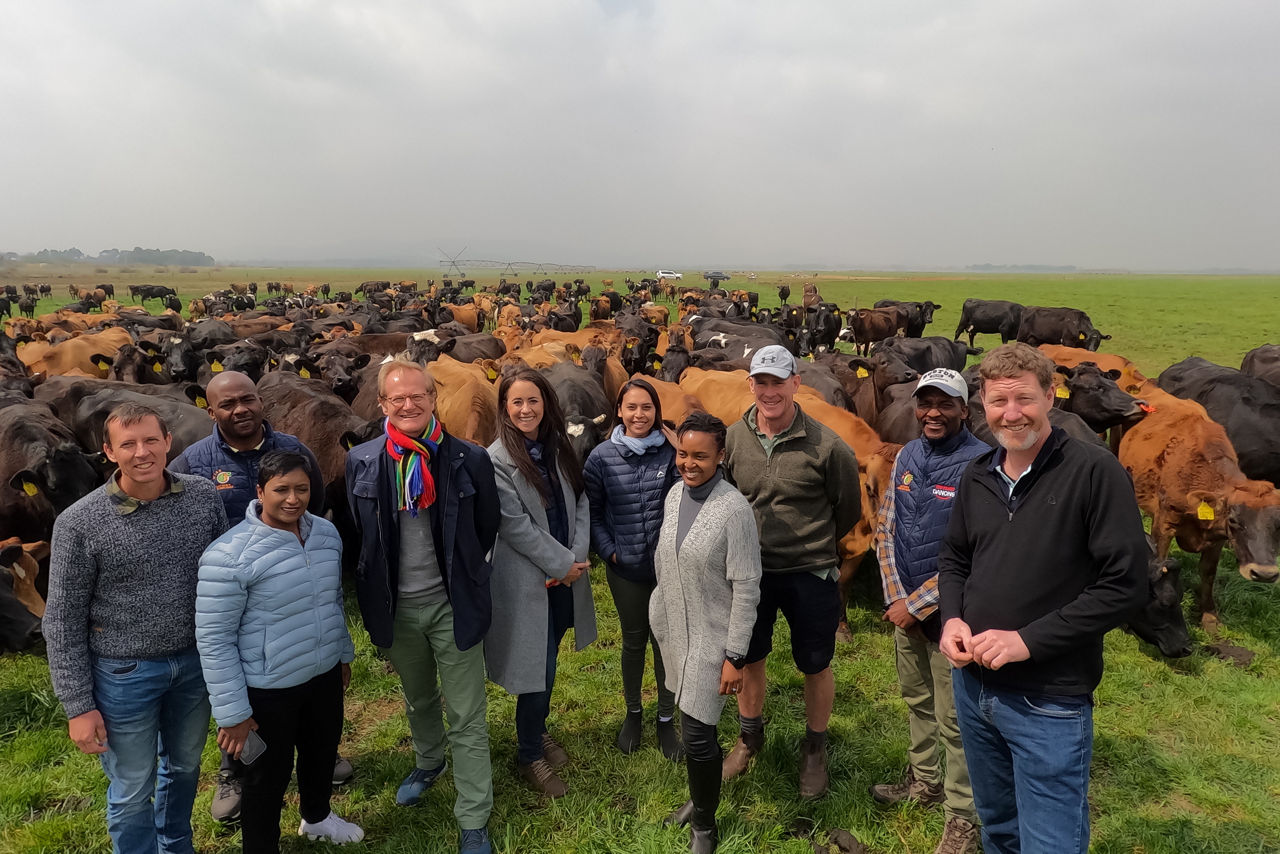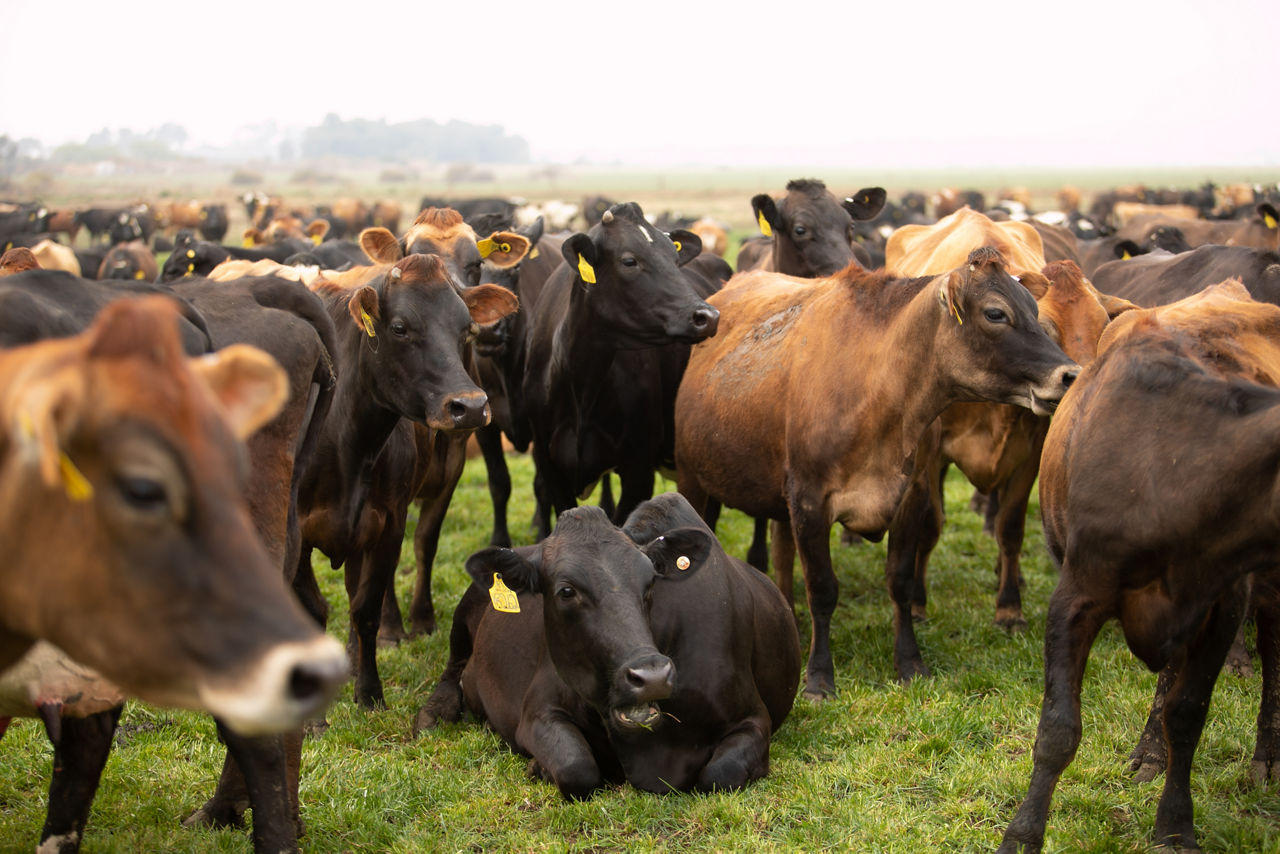Regenerative Agriculture
Danone is working to develop and promote regenerative models of agriculture that protect soils, empower farmers and promote animal welfare.
At Danone, agriculture is at the heart of what we do. We are proud to maintain close relationships with 9 farmers and 14 dairies in South Africa.
Agriculture is at the center of a number of major challenges today, from economic development and climate change to water scarcity and biodiversity loss. Danone is determined to help overcome these challenges by developing new agricultural models that can regenerate the planet while feeding a global population that is set to surpass 9 billion people by 2050.
In November 2017, Danone announced its intention to sharpen its focus on Regenerative Agriculture, our term for a combined set of practices that strengthen agricultural resilience. We see regenerative agriculture as resting on three pillars: protecting soil, empowering a new generation of farmers, and promoting animal welfare.
All of Danone South Africa’s farmers are committed to Danone Southern Africa’s Regenerative Agriculture journey. Farms were assessed for the first time on 2021 to inform the baseline performance for 2022 and on which the new Regenerative Agriculture premium on farmers' milk price is to be paid.
In June 2021, Danone launched the Danone Regenerative Agriculture Knowledge Center, an open source website dedicated to sharing the wealth of regenerative agriculture knowledge we have at Danone, irrespective of type of production (dairy, plant-based, fruits, vegetables, cereals, etc.), with our farmers, farm advisors, field technicians and technical partners.
Available in 10 languages, the Danone Regenerative Agriculture Knowledge Center showcases regenerative agriculture projects and best practices Danone and its partners are implementing in the field, as well as thematic factsheets, case studies, web-talks and testimonials from the farmers we work hand-in-hand with everyday!
Protect soils
A thin layer of topsoil is responsible for 95% of all the food produced for human consumption. Yet soil is a resource that we have taken for granted; an estimated 33% of land worldwide* moderately to highly degraded. By transforming agricultural practices, we can begin to reverse this situation and build healthy and resilient soil.
*source: Main report of FAO - Status of the World's soil ressources, 2015

Healthy soil is a carbon sink, storing a vast amount of carbon withdrawn from the atmosphere by plants via photosynthesis. That is why we promote agricultural practices which enhance soil organic matter content and help sequester more carbon, such as limiting chemical inputs, rotating crops, reducing soil tillage, and using crop residues as compost.
Studies have also shown that healthier soils are more resistant to both drought and erosion from heavy rainfall. Healthy soil is able to retain more water, energizing its ability to support microorganisms and plant growth.
Representing a full quarter of the world’s biodiversity, the microorganisms present in healthy soil nourish and protect vegetal and animal biodiversity, creating healthy ecosystems that are more resilient to the stresses of climate change.
Watch ‘The Soil Story’ to discover the role soil plays in combatting climate change.
Danone is working with a number of partners to help improve global understanding of how agricultural practices can help nourish and protect soil health.
Since 2017, we have launched ambitious projects supporting farmers in the development of sustainable agriculture practices. Whether it is through worldwide initiatives (such as COP21’s 4 for 1000), through our projects with farmers and suppliers, or collaborative partnerships with peers throughout the supply chain (e.g. Farming for Generations, OP2B, SAI), we are committed to taking responsibility and doing our part to respond to this global challenge.
Today, regenerative agriculture is one of the KPIs we follow as part of our Entreprise à Mission journey.
Empower a new generation of farmers
Because of our close links to farmers, we know how indispensable their work is to the global economy and the food system of emerging farmers in particular. Farmers know their land best and our goal is to support the ability of farmers to make these shifts, and to accompany them as they pass along their craft to the next generation.

One way we do this is by developing durable relationships with farmers, often over multiple generations. These close relationships allow us to put into place long-term contracts, and a new price management system according to the regenerative practices farmers employ. Partnerships like these help encourage and support farmers in transitioning or expanding on Regenerative Agriculture and guarantee stable profit margins and mitigate the effects of fluctuations in the market of price of goods. This gives farmers the stability that allows them to project and invest in the future. In Europe, for instance, Danone has established long-term contracts with 40% of our farmers.

Synag Dairy Farm
In Madagascar, for instance, the Livelihoods Fund for Family Farming is working with 3,000 vanilla farms, helping farmers improve the quality of their products so that they can sell them at a better price. At the same time, the Livelihoods project is empowering farmers with agroforestry techniques, with the aim of converting 6,0000 ha to sustainable farming.
In France, Danone announced in 2018 that it would be supporting farmers in developing and implementing effective soil health practices, with the ambition of sourcing 100% of ingredients produced in France from regenerative agriculture by 2025. Danone France plans to donate one day of sales turnover (roughly 5 million euros) as part of this effort, in order to fund projects like "Programme Les Deux Pieds sur Terre", which uses innovative financing tools to help farmers reduce their carbon footprint.
We are also working closely with dairy farmers through Farming for Generations (F4G), a global alliance* led by Danone, with the goal of promoting regenerative farming practices that have a positive impact on nature while ensuring long-term economic viability of dairy farming businesses.
In essence, F4G is working to speed up the transition towards regenerative agriculture, test innovative solutions and adapt them based on the feedback and inputs from participating farms. Since its creation in 2019, F4G worked with 30 pioneer farms across 8 different countries and proved many solutions to be viable.
See the F4G section of the Danone Regenerative Knowledge Center for more farmers testimonials, best practices and tools developed by F4G partners and farmers.
*Led by global food industry leader Danone, Farming for Generations draws on the expertise of leaders from the whole agricultural value chain: animal health and welfare companies MSD Animal Health, Neogen and FutureCow; animal nutrition and health company DSM; crop nutrition leader Yara; crop science company Corteva Agriscience; and artificial intelligence agri-food start-up Connecterra. Netherlands-based Wageningen University and Research, renowned for its food and food production research, supports the project in a research and advisory capacity. The NGOs WWF France, a national organization in the WWF Network, and Compassion in World Farming also provide guidance to help the project reach its goals.
Respect animal welfare
Animals are an integral part of regenerative agriculture. We believe a high level of animal welfare is key to the regeneration of farms, reinforcing their economic sustainability, performance and competitiveness. Dairy farms with improved animal welfare standards show significantly higher milk production and milk quality.
Our animal welfare approach, developed in cooperation with Compassion for World Farming (CIWF) and other animal welfare specialists, is based on the internationally recognized Five Freedoms developed by the Farm Animal Welfare Council. Locally we audit our farms bi-annually using an independent third party to ensure these freedoms are upheld for all species, across our full supply chain.
See our animal progress report - 2020 (click here)
See our animal testing position paper - 2016 (click here)
